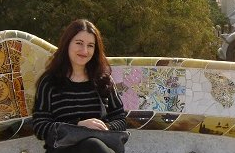Sunderland Literature Festival 2018

Once again, the School of Culture was well represented at the annual Sunderland Libraries Literature Festival, with talks by Dr Geoff Nash on the sea as literary imagery from Anglo-Saxon poetry to the novels of Amitav Ghosh; Dr Delphine Doucet on 'religion at the dinner table - a sixteenth century dialogue'; Dr Miguel Gomes on the Codex Amiatinus. The festival also saw the launch of the latest offerings from Spectral Visions Press - the School's own in-house student-led publishing company.





